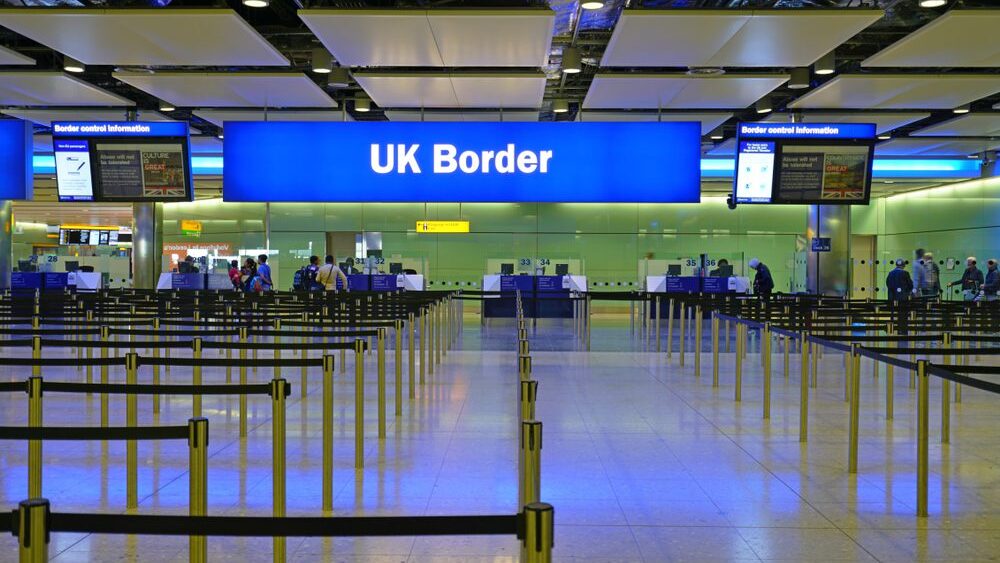
Photo: EQRoy / Shutterstock.com
Most standard passport checkpoints have already been replaced by ‘e-gates,’ reducing the need for human interaction (unless, of course, the technology isn’t working). British officials are now considering going a step further by introducing gates that allow arrivals using facial recognition.
Under the plans, arriving passengers would not be required to carry passports. Instead, they would need to download an application on their mobile device, answer a set of questions, scan their passport, and provide a photo, according to The Times.
Border Force Director-General Phil Douglas said the aim was to develop an “intelligent border” that used “much more frictionless facial recognition than we currently do.”
Just like the officials who are pushing trials forward, British newspapers are clearly sold on the idea. The Guardian celebrated that “the last-minute racking of brains on arrival in the UK to try to remember where the passports were packed, followed by the panicked fumbling all the way to the bottom of every compartment of every bag” could be a thing of the past. The Times added that biometric details of British and Irish travellers are “already held after being obtained in the passport application process,” meaning the facial recognition process would bear no further risks for these arrivals.
But the paper did note that Britain’s current e-gates system has “suffered a string of failures in recent years.” The system collapsed completely at the beginning of the late May bank holiday due to a failed system update. Concerns about the increased use of facial recognition in various aspects of our daily lives aside, few are likely to doubt that a new system based on this technology would suffer similar hiccups, and could be even more of a pain to resolve.
The technology is now used so widely across the country that campaign group Big Brother Watch has branded this “Biometric Britain.” It has described the spread of facial recognition as “a mortal threat to privacy as we know it.”
Trials for the new tech are expected to be rolled out in airports later this year.
